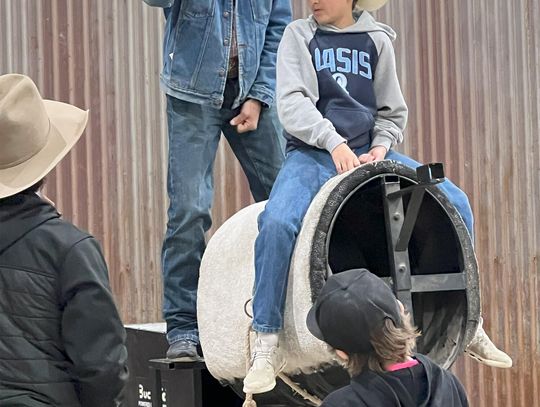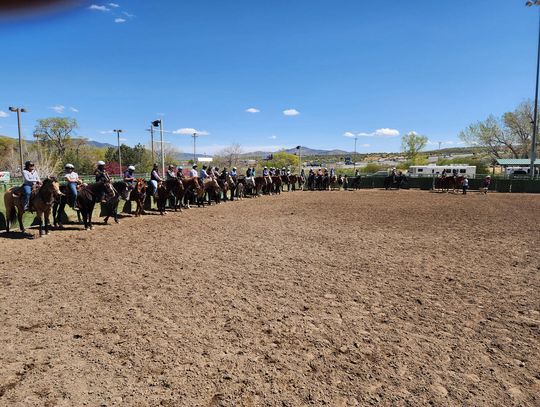As I near the completion of my fourth year of weekly columns in the Fallon Post, I am reminded of my intentions for this endeavor. I hope to help demystify cooking, encourage you to try new techniques and recipes in your home kitchens, and open your eyes to the importance of eating seasonally and within our local foodshed. When I started this column in 2021, we were witnessing the collapse of our American food system. The predominant agricultural paradigm in the United States emphasizes efficiency. The system seemed safe and bountiful if you didn’t look too closely. At any time of year, you could walk into your local grocery store and buy virtually anything that your heart desires regardless of the season. This system was vulnerable and capable of causing harm, and when we experienced the global interruption of COVID-19, the system collapsed.
One of the outcomes of the breakdown of our national food system was an increased awareness of the importance of local and regional food systems. In late 2022, the U.S. Department of Agriculture announced the availability of $360 million for a new program - Regional Food Business Centers. According to the application request, the centers “are envisioned to provide coordination, technical assistance, and capacity building support to small and mid-sized farm and food businesses, to create a more resilient, diverse, and competitive food system.” Nevada, Arizona, California, and Utah are part of the Southwest Region. Our state team for the Center includes teams from the University of Nevada, Reno Extension, the Desert Farming Initiative, the Nevada Department of Agriculture, and the Nevada Small Business Development Center.
On December 2, our Nevada Center announced a new grant opportunity for food systems businesses. For the next three years, $200,000 is available annually to help businesses build capacity and access new markets, leading to increased viability and resiliency. Eligible applicants include any Nevada business that works with or sources ingredients from a Nevada agricultural producer. Our goal is to have more food for people grown in Nevada, manufactured in Nevada, and consumed in Nevada. For more information about the Food Business Center, visit https://extension.unr.edu/food-business-center/.
You are part of the local food system. As someone who eats, your decisions make a difference. When you start thinking about where your food is grown/raised/made, you have taken a step toward being engaged in our local food system. Eating foods from Nevada helps increase the resiliency and viability of our local food system and the individual farms, ranches, and value-added producers in our communities. For more information about certified Grown in Nevada producers, visit https://madeinnevada.org/grown-in-nevada/.
Butternut Squash Brothy White Beans
Ingredients
- 1 Butternut squash
- 1 head Garlic
- 4 c Chicken stock
- 2 T Olive oil
- 2 c Brussels sprouts, thinly sliced
- 1 White onion, thinly sliced
- 4 sprigs Rosemary, stems removed & chopped
- 4 sprigs Thyme, stems removed & chopped
- 1 T Calabrian chili paste
- ½ lb White beans, cooked
- 2 T Red wine vinegar
- Kosher salt & black pepper
- ¼ c Dry white wine
Directions
- Preheat the oven to 400°F. Halve the squash and remove the seeds. Drizzle with olive oil and place cut side down on a lined sheet pan. Cut the top off the garlic head, drizzle with olive oil, wrap in aluminum foil, and add to the baking sheet.
- Roast the squash and garlic for 30-45 minutes until the squash is very soft, then remove from oven. Scoop the squash into a blender along with the chicken stock. Squeeze in the roasted garlic. Blend until well combined.
- In a large pot over medium heat, add 1 T of olive oil and half of the shredded Brussels sprouts. Cook until slightly charred. Remove from pan. Add another T of olive oil and sauté the onions until softened. Add the herbs and season with salt and pepper. Add the white wine, bring to a simmer, and reduce the liquid by half. Add in the chile paste and stir to combine. Add in the cooked beans and the butternut broth. Bring to a simmer.
- Add in the uncooked Brussels sprouts. Cover and simmer for about 15 minutes. Season to taste with salt and pepper, and add a dash of red wine vinegar. Garnish with charred Brussels sprouts, and enjoy.










Comment
Comments